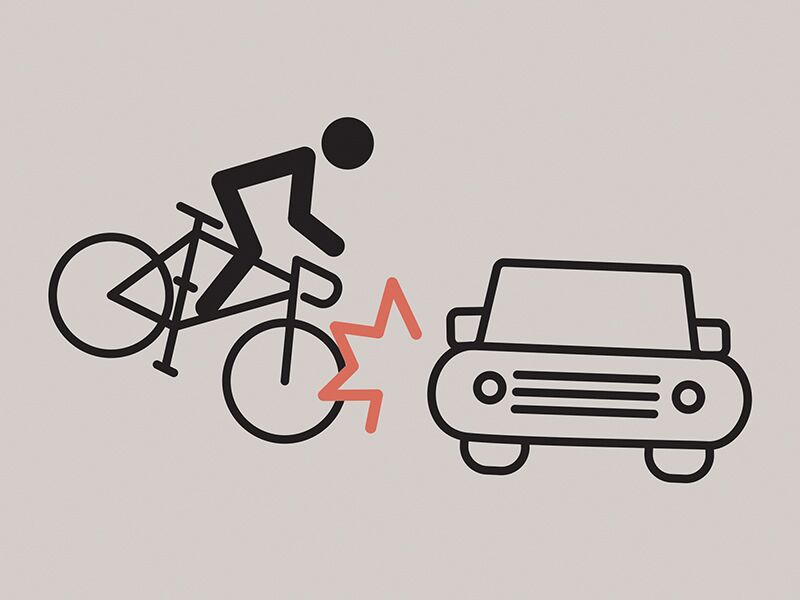I woke up for my 10:45 class and hurriedly started making breakfast — an egg-salad sandwich, an unusual breakfast that started off a truly unusual day.
I left my house with around 20 minutes to arrive to class; I had a 25-minute bike ride to go. Gaining momentum as I went downhill, the wind blew in my face and I felt like a man on a mission who was not going to stop at anything to arrive punctually. I felt invincible and nothing mattered more than arriving to class on time. How wrong and delusional I was!
I completed half the ride in a very short amount of time and I was on schedule. On Victoria St. and Lacombe St., I blasted through a couple of stop signs in a row since there were no cars on the street. After all, I was invincible. As I sped down the street, I noticed a car approaching me on my right. I assumed it would slow down so I could gracefully maneuver around it and be on my way. Nothing deplorable or dangerous could happen to me!
Suddenly, I realized this car and I had a perpendicular collision: it directly hit the side of my bike and I flew into the air. I flung my arms out wide as they smashed against the ground with my legs hitting right after. How simultaneously ephemeral and timeless was that moment when I was suspended in the air with my fate uncertain and my mind bewildered.
It all happened so fast. As soon as I was on the ground, I was already up off the pavement — there was no reason to pity myself or wait to see if I was injured. Immediately, a woman got out of the car and asked if I was alright. I looked at my body, felt my limbs, assessed for pain, and replied: “Yes, I’m okay. That was my fault — my responsibility. That was one of the dumbest things I’ve ever done in my life and I’ve learned my lesson. I won’t call the police.”
She asked if the bike was okay, and I assured her there were no damages apart from the chain falling off. Almost as if a divine entity possessed this strange woman, she placed both of her arms on my shoulders and said “may the blood of Christ protect this young man on his journey and may he be offered a safe passage through the world.” I said thank you, and I meant it.
She got back in the car and slowly pulled off. I fixed my chain and kept going, shaken up yet grateful beyond belief that I survived a major collision unscathed — that was the closest thing to a miracle I’ve ever experienced. The only injuries I sustained from it were a sore left hand and a wholly unremarkable scratch on the underside of my left leg.
I arrived at Loyola three minutes late for my class. I locked my bike, walked up to my class, arrived at the door — the room was empty. My heart sunk as a feeling of pitiable ecstasy flushed through my being. I arrived a full hour early for my class.
Ridiculed by the universe, I started laughing hysterically. What a great comedic game that the universe orchestrates — these forces above me, the gods of old, who had been betrayed by the ignorance of modern man, were revived and active forces in my psyche! I then realized my priorities had been gravely mistaken. Why had I felt that the approval of my teachers and classmates trumped my own safety? Upon arrival at the empty classroom, my actions were put in perspective.
As I walked through the hallways, I overheard classes taking place. I briefly listened to a man speaking with passion and conviction to a receptive audience. Glancing into the classroom windows, I was humbled and grateful by the fact that we live in a free society with the opportunity to learn with ease and privilege.
I went outside and sat on a bench, looking at people walking to and from their classes, all with a place to go, a path to follow. For everything, small and large, I felt appreciative and accepting, grateful for all things as they are. People’s responses to what happened were often that I was stupid to arrive an hour early, but in life, you aren’t often given chances of death and rebirth without pain. I learned a valuable lesson without dying! They say that cats have nine lives. Maybe humans have three — and I have one remaining. How I lost the first one? That’s for another story.
Archive graphic by Zeze Le Lin
